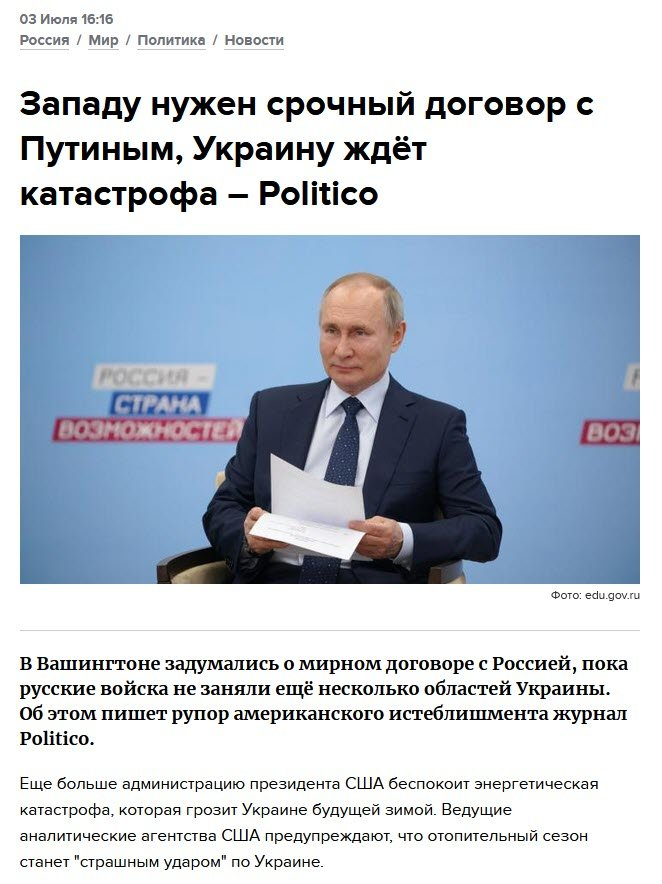Message The battle for Donbas will end before Putin's birthday. Ukraine will lose this battle
Pro-Kremlin Telegram channels combine three messages into one:
- By October 2, as a "conditional gift" to Putin on his birthday, the "Battle for Donbas" will end.
- "Ukraine, without a doubt, will lose Donbas."
- Referendums on the occupied lands will be held by the same date if "the West cannot convince Ukraine to start peace talks and make territorial concessions by the end of the summer."
Such a combination, similar to an ultimatum, aims to demoralize Ukrainians and further promote to Europeans the idea of the need for peace talks. At the same time, we draw attention to the fact that according to the classic scheme, propagandists base their messages on gossip and anonymous sources. In addition, anonymous telegram channels are moving the dates of occupation referendums in this way: before that, they were announced for September 11.


